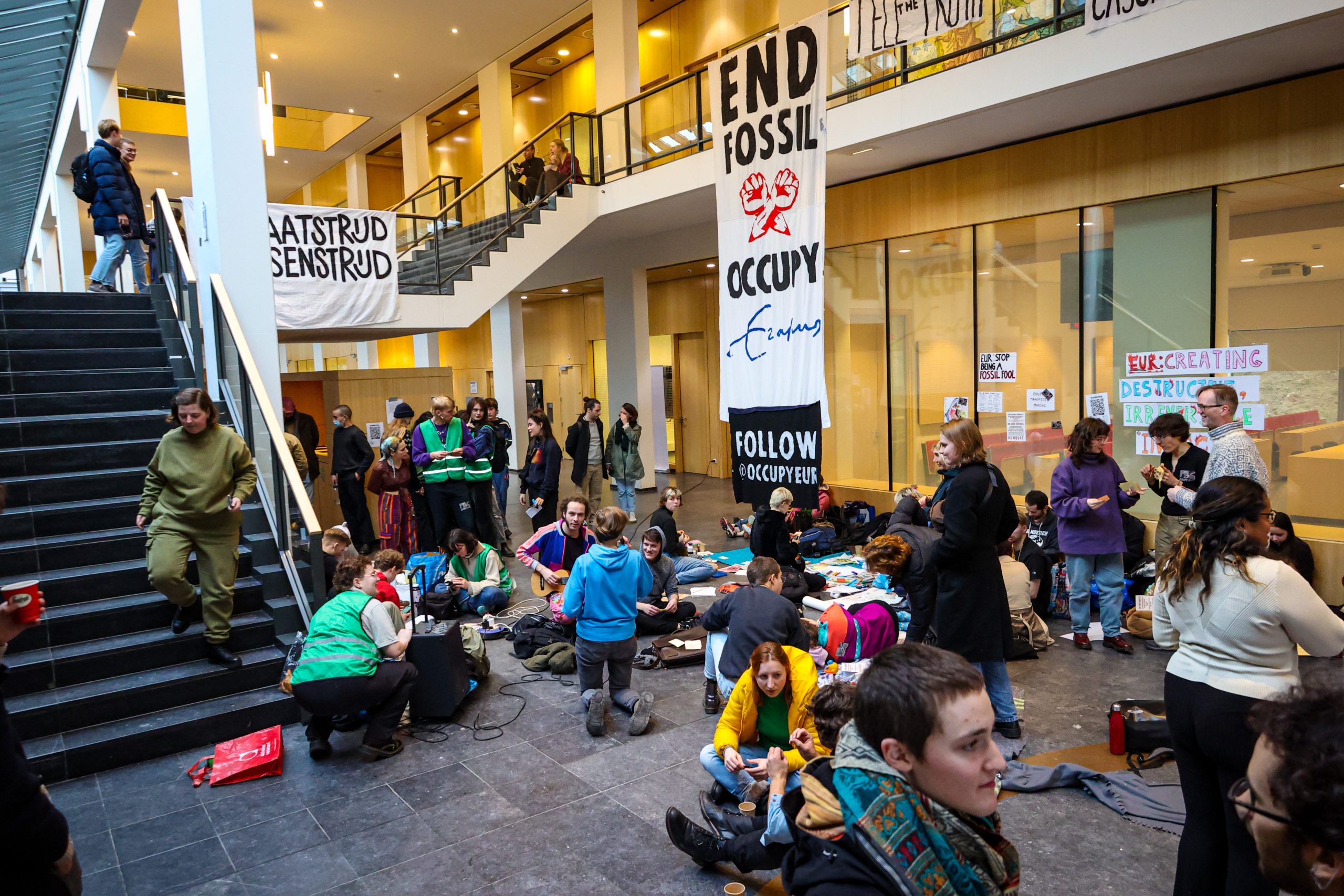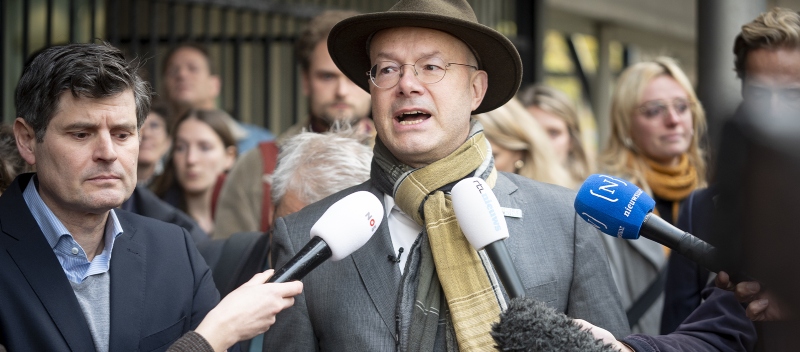The relationship between universities and corporations such as Shell has been under pressure lately. The Erasmus University intends to ‘provide insight into their relationship with organisations in the fossil industry’, and the UvA declared it would no longer initiate new projects in collaboration with oil and gas companies following protests. Organisations such as Naturalis and the ABP pension fund did the same earlier.
WUR chair Sjoukje Heimovaara indicated in an interview with Resource not to want to go to these lengths because WUR conducts climate-relevant research with Shell. ‘That would mean you look good in the short run but fail to advance solutions to the issue of climate change in the long run.’
The Wageningen branch of Scientists4Future disagrees. They wrote a letter in the issue to the Executive Board last week. They want to discuss the funding of Wageningen research by fossil corporations. The Executive Board has agreed to a meeting.
Read the letter below:
Scientists4Future–Wageningen:
Accepting research funds from fossil fuel companies
represents an inherent conflict of interest
Wageningen, 21 February 2023
The climate and biodiversity crises are perhaps the greatest threat to humankind and all other life on Earth. Wageningen University and Research holds a prominent position in this area of research, and since its mission is to improve the quality of life, WUR is also taking numerous initiatives to become more environmentally friendly and sustainable. In this trend of corporate responsibility, it is appropriate to also develop guidelines for industrial alliances. Recently, universities have been urged to reduce their reliance on the fossil fuel industry. Trouw, for example, has issued an open letter on this topic.
We, Scientists4Future-Wageningen, share this view on fossil fuel companies and on this issue we aim to co-create a clear and transparent system of third party involvement in our research and education, considering crisis-causing corporations in particular, through close cooperation with WUR staff, students, and the Executive Board of WUR.
At WUR, we have noticed that employees and students are increasingly reluctant to maintain ties with the crisis-causing corporations. This uneasy feeling is particularly prevalent among the younger generations, whose future is most at risk. Even though we may be proud to be a member of WUR, ranked as the most sustainable university in the world, our good intentions will be in vain if we continue to support a destructive economic system.
As scientists we are constantly exposed to the best and most up-to-date scientific information, which gives us a responsibility to disseminate this information and warn the public about the severity and ramifications of these crises. It is crucial that we are impartial if we want our voices to be heard. However, if our income partially depends on funds from ‘fossil’ businesses that are largely to blame for these crises, we run the risk of losing our integrity. This undermines an important function that we currently have as scientists.
Although some may contend that scientists can be ‘objective’ and conduct independent research, regardless of the funding source, we are not unbiased in what research we do. Whether consciously or unconsciously, our research is thus steered in a direction that is more supportive of anthropogenic business-as-usual and this has created blind spots for fundamental alternative solutions and futures.
Another consequence of being contracted by such companies, is that we build a (working) relationship. These collaborations give companies easier access to the latest (unpublished) information, which they can selectively use to their advantage, for example during debates with other organizations like NGOs. This could (unconsciously) increase our reluctance to speak up and create an unequal playing field. Finally, we must acknowledge these companies for their funding in our conference presentations and (peer-reviewed) scientific publications. By doing so, we basically give credit to those who are responsible for the climate crises we are warning the public about.
While some businesses take steps to become more sustainable and invest in renewable energy, like constructing wind farms, most fossil fuel corporations still don’t align their investments in future oil and gas exploitation with these sustainability commitments. For example, Shell’s net-zero policy will already surpass their share of the remaining carbon budget by 2034, which is incompatible with limiting global warming to 1.5°C. Therefore, their involvement in renewable energy or carbon capture activities can be viewed as “green-washing”.
Although we might be willing to help businesses make the transition to sustainable practices, we don’t want our involvement to promote the social acceptability of other non-sustainable practices. Therefore, we propose more stringent requirements for accepting funds from fossil fuel companies and/or collaborating with them. We suggest two requirements in relation to the climate crises that must be fulfilled:
- The funding partner no longer invests in future fossil fuel extraction projects
- In accordance with the Paris Agreement, the funding partner reduces greenhouse gas emissions by 3%* each year relative to 2015, the year the Paris Agreement was signed. This implies a 45% reduction in GHG emissions before 2030.
As members of Scientists4Future-Wageningen, we brought our concerns to the Executive Board of Wageningen University and we hope to soon discuss this proposal to co-create fossil industry-free research for the future with the said Board.
Geert Aarts, Martijn Duineveld, Susanne van Donk, Anne-Juul Welsink, Benedikt Haug, Jasper Eikelboom, Chloe Tavernier and Ignas Heitkönig (all are members of Scientists4Future-Wageningen).
*Some companies, like Shell, plan to aim for net-zero emissions by the year 2050. However, their highest projected reductions are foreseen in the final years. Not only do they exceed the GHG budget that can be used to limit global warming to 1.5 degrees Celsius, their net-zero strategy also depends on technologies that may neither be practicable, nor currently accessible.

 Student protesters occupied an Erasmus University building last November. Photo ANP
Student protesters occupied an Erasmus University building last November. Photo ANP 

